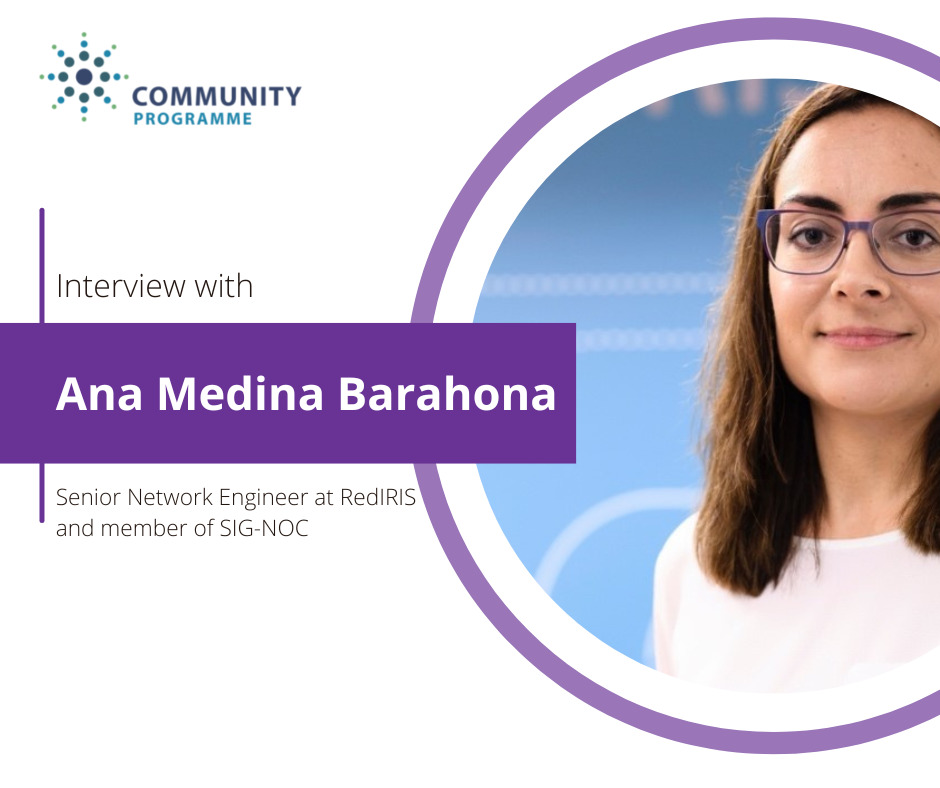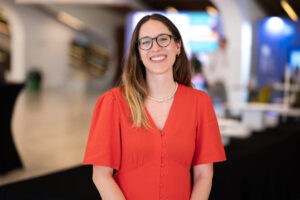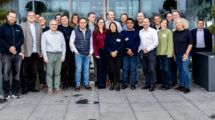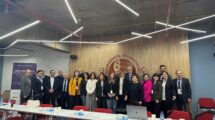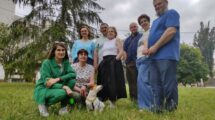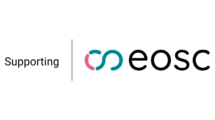This interview is part of a series highlighting the objectives, roles and mission of GÉANT Community Programme’s special interest groups and task forces.
Ana Medina Barahona has been working at the Network Operations Centre of the Spanish academic and research network, RedIRIS, since 2007 as a network engineer, designing and configuring network services, participating in both national and international projects. She is also a member of the Special Interest Group on Network Operations Centre (SIG-NOC) and a valuable member of the GÉANT Community Programme. We interview her to find out about what she is working on and what the Community means to her.
Ana, since you have been a member of the SIG-NOC since its creation in 2015, we are curious to know what this Community means to you.
After now 7 years in SIG-NOC and many more in its predecessor TF-NOC, I have come to consider the Community like a group of friends! Joining the meetings and SIG-NOC’s Steering Committee opened my mind to the fact that despite the physical distance, NRENs are working towards the same mission and that, although we are all delivering services in different ways, challenges are shared! I appreciate the opportunity to discuss, exchange ideas and learn from my colleagues, because it has helped me grow in my position at RedIRIS and apply my learnings to my daily work in the NOC.
You are also in the SIG’s Steering Committee, where you are joined by two other women. That makes three women out of five, such a positive development in a field that is mainly male dominated! Can you tell us your experience of being a woman in STEM in the Community?
I first became interested in the field of telecommunications and internet after watching the movie War Games (1983)! I was fascinated by the endless possibilities of computers! So, I went on to study telecommunications at the University of Jaén in Southern Spain. In my class, we were only less then twenty women out of hundreds of male students. And that has been the case for many years, during which I have always worked in male dominated teams. I worked for Telefonica in the Operations team, where I was supervising several commercial services, especially ADSL. Now, at RedIRIS, the environment is very different! My NOC is very balanced gender-wise. We are three women and two men, and the Network Manager herself is a woman.
You are a Senior Network Engineer at the Spanish academic and research network, RedIRIS. How does your typical day look like in the NOC?
Since we deployed the new dark fibre network, my typical day has changed. Before that I used to spend the day solving incidents, configuring more services and doing other more operational things. But now, instead, I am mainly involved in public tenders which are meant to deploy fibre all over Spain. After a tender is published, I follow its execution, meaning the installation and deployment of IP equipment, changing the routers, etc. I work together with my team in Madrid and liaise with the providers on a daily basis.
We know that you have been involved in the deployment of the RedIRIS network on dark fiber, called RedIRIS NOVA. What was your role in it?
We started the new network in 2009. I was in charge of part of the migration to keep the services but also supported other colleagues focused on the deployment. A few years later, we created RedIRIS NOVA 100 by changing some equipment that was connected directly to the fibre to have a bigger capacity of up to 100Gbps. In what we can consider a 2.0 version of the network, I have more of a leading role, as I am in charge of the new IP equipment (routers and switches).
Every three years, SIG-NOC runs a community survey to gather useful information around the software tools the NOCs use to operate networks and services. Being an ever-evolving field and with the COVID-19 pandemic happening in between 2019 and now, what changes and trends do you expect to see in the results of the next survey?
In the last few years, we noticed an increase across the NOCs of the NRENs in the use tools related to business intelligence, automation, and security. It’s tricky to foresee the results of the next survey since this field is constantly changing, but surely a challenge of interest to the Community is power efficiency of data centres and infrastructure. It will be interesting to see what greener options the Community is working on. The report is an incredibly useful tool as its results are transformed into a report that is made available to the Community and makes it easy to see how NOCs evolve and change.
Stay updated on SIG-NOC activities, achievements and future meetings on the group’s wiki page. And check out this poster summarising the group’s main focuses that was created for TNC18.
More on the GÉANT Community Programme, its mission and tasks can be found here.
